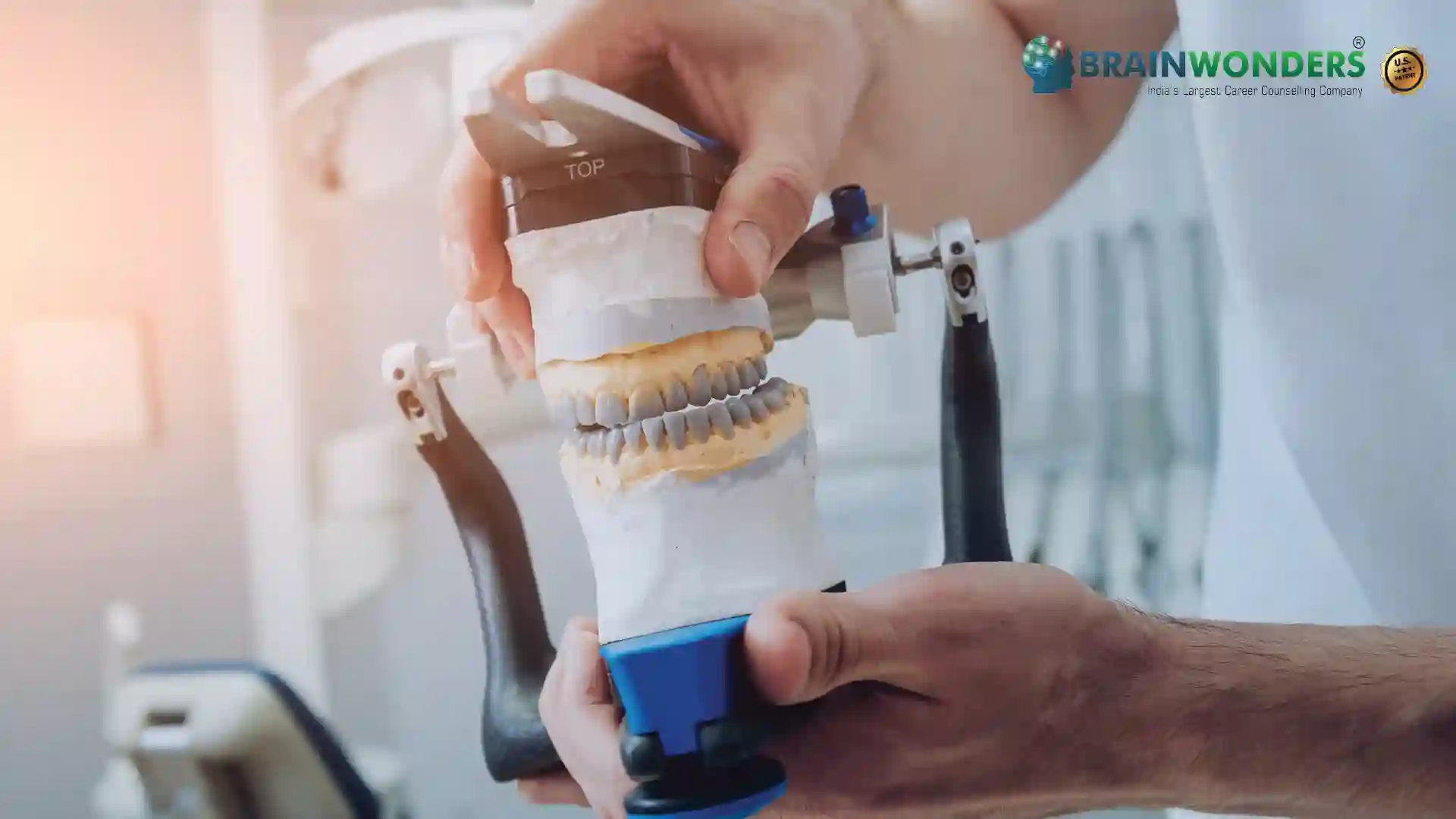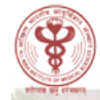How to become a Prosthodontist
Overview, Courses, Exam, Colleges, Pathways, Salary

Overview
Who is Prosthodontist ?
A prosthodontist is a dentist specialising in the replacement and repair of teeth, primarily for aesthetic reasons. Veneers, dental implants, bridges, crowns, inlays, inlays, and partial and total dentures are among the operations they do. A Prosthodontist treats patients who have lost some or all of their teeth. Their work aims to aid patients with regular oral functionality, such as chewing and speaking correctly and enhancing the look of their teeth. They get specialised training in cosmetic dentistry and restorative methods and repair people's smiles after natural ageing or after catastrophic incidents. Prosthodontists are considered the leaders in treatment planning. There is no dental specialist better equipped to restore both performance and aesthetics to your mouth.
Typical day at work
What does Prosthodontist do?
- In addition to performing minor procedures, exams, and cleaning, Prosthodontics concentrate on identification, prevention, diagnosis, and treatment planning for patients having more advanced or complex dental requirements to reduce the effect on the oral environment.
- Examine teeth of the patients to establish the most appropriate plan of action
- Provide consultations by discussing dental needs and medical history
- To assess the shape and size of dental prostheses, perform jaw and teeth impressions and measurements with the help of face bows, dental articulators, recording devices, and other tools
- Switch missing teeth and other oral structures with permanent (implant-supported prostheses, crowns, bridges) or removable (dentures) fixtures
- Design and construct individualized dental prostheses for every patient
- Oversee dental and laboratory technicians while constructing the prosthetic devices
- Adjust and modify prostheses to create a perfect fit for patients
- Send wax models for making new prostheses in the laboratory
- Perform denture repair, reline, or re-base
- To conceal defects, attach veneers onto teeth
- Use bonding technology to change the shape of the teeth or to close gaps on the tooth surface
- Treat facial pain and jaw joint issues
- Brighten and whiten discoloured teeth using bleach
- Develop proper fitting and setting of crowns, bridges, and removable or permanent dentures
- Place and fit dental implants
- Fix Temporomandibular Joint Disorders, sleep and snoring disorders, or cleft palates
- Repair injuries, restore function, and aesthetics of mouth and teeth caused due to facial abnormalities, traumatic injuries, maxillofacial defects, and birth defects
- Perform comprehensive oral cancer reconstruction surgery
- Synchronize treatment arrangements with other dental or medical specialists to provide comprehensive and complete patient care
- Provide rehabilitative strategies and aftercare to cancer patients for troubled eating and communicating.
Abilities and Aptitude needed
What are the skills, abilities & aptitude needed to become Prosthodontist?
- Along with understanding how to operate and set up complex machinery, Prosthodontics should value precision and accuracy and be comfortable working with equipment that requires careful monitoring.
- They must listen actively and communicate with patients to meet their requirements. They need to ask the right questions to interpret the information to find a diagnosis and recommend necessary treatment. They also regularly interact with other doctors and administrative staff Thus, having good communication, interpersonal, leadership, problem-solving, judgement, decision-making, and analytical skills is necessary.
- They need to be skilled with their hands and work closely, safely, and effectively with needles and other instruments. Thus, good hand-eye coordination, manual dexterity, and fine motor skills are necessary. They must be detail-oriented patients and pay attention to the shape and colour of teeth to provide the correct treatment.
- In addition, they must follow all standard safety protocols and quality control standards in the laboratory and comprehend and follow all legal and health care processes.
- One must have physical stamina as they need to bend over for long periods for patient treatment and consultation.
Salary
Salary for Prosthodontist?
Prosthodontist - Salary Information is as follows :
- Minimum Monthly Salary: For entry-level Prosthodontists or those with limited experience, the monthly salary might range from INR 80,000 to INR 1,50,000 or more.
- Maximum Monthly Salary: Highly experienced and skilled Prosthodontists, especially those with advanced training, private practice, or working in reputable dental clinics, may earn a monthly salary ranging from INR 2,50,000 to INR 5,00,000 or more.
- Annual Salary: The annual salary for entry-level Prosthodontists could be approximately INR 9.6 lakhs to INR 18 lakhs per year. Experienced and well-qualified Prosthodontists may earn a maximum yearly salary ranging from INR 30 lakhs to INR 60 lakhs or more.
- Highest-Paying Jobs and Scope: The highest-paying jobs for Prosthodontists are typically found in specialized dental clinics, private practices, and renowned dental hospitals. Prosthodontists who have completed advanced education, possess exceptional clinical skills and have a successful track record in providing prosthodontic treatments can command higher salaries and may have opportunities for career growth as specialists or consultants. As dental care and aesthetics gain importance, the demand for qualified Prosthodontists remains significant. These dental specialists focus on restoring and enhancing patients' oral function and appearance through prosthetic dental treatments such as crowns, bridges, dentures, and dental implants. With the increasing emphasis on oral health and cosmetic dentistry, there is a growing need for skilled Prosthodontists who can contribute to the field through clinical excellence and research advancements. As the dental industry evolves, Prosthodontists with expertise in digital dentistry, implantology, and cosmetic procedures will likely have excellent career prospects in the dental healthcare sector.
Pathways
How to become an Prosthodontist?
Entrance Exam
Entrance Exam for Prosthodontist ?
Courses
Which course I can pursue?
Best Colleges
Which are the best colleges to attend to become an Prosthodontist?
Industries
Which Industries are open for Prosthodontist?
Prosthodontists have opportunities for employment in various industries related to dental care and oral health. Some of the industries that are open for Prosthodontists include:
- Dental Clinics: Prosthodontists are commonly employed in private dental clinics, providing specialized prosthodontic treatments to patients.
- Dental Hospitals: Large dental hospitals and dental care centers often have dedicated departments for prosthodontics, where Prosthodontists offer their expertise in advanced restorative and cosmetic dental procedures.
- Academic Institutions: Prosthodontists can work as faculty members in dental schools and universities, teaching and mentoring dental students in prosthodontic techniques and procedures.
- Research and Development: Some Prosthodontists may work in research institutions or dental product companies, contributing to developing and improving dental materials and technologies.
- Specialty Dental Practices: Prosthodontists may collaborate with other dental specialists in multi-specialty dental practices, providing comprehensive care to patients with complex dental needs.
- Government Health Services: Prosthodontists may find opportunities to work in government health departments or public health programs, providing specialized dental care to underserved populations.
- Veterans Affairs (VA) Hospitals: Prosthodontists can work in VA hospitals, focusing on providing dental care to veterans with unique dental needs.
- Dental Insurance Companies: Some dental insurance companies employ Prosthodontists to review and assess dental claims related to prosthodontic treatments.
- Dental Implant Centers: With the increasing popularity of dental implants, Prosthodontists may work in specialized dental implant centers, offering implant-supported restorations.
- Cosmetic Dentistry Practices: Prosthodontists with expertise in cosmetic dentistry may work in practices that enhance patients' smiles and dental aesthetics.
internship
Are there internships available for Prosthodontist?
Internship opportunities for Prosthodontists can vary depending on the country and specific institutions. In many countries, Prosthodontists undergo extensive training during their postgraduate dental education, which includes practical clinical experience and hands-on training. However, Prosthodontists might have additional opportunities to gain further experience through specialized internships or fellowships in certain settings. Here are some potential internship options for Prosthodontists:
- Hospital Residencies: Some hospitals offer postgraduate dental residency programs, including rotations in various dental specialties, including prosthodontics. These programs provide Prosthodontists with valuable clinical experience and exposure to complex cases.
- Specialty Dental Clinics: Prosthodontists may have the chance to intern or observe at specialized dental clinics that focus on prosthodontic treatments, cosmetic dentistry, or implantology.
- Academic Institutions: Prosthodontists pursuing academic careers can explore internships or assistantships in dental schools or universities, assisting faculty members and gaining teaching experience.
- Research Internships: Prosthodontists interested in dental research can seek internships at dental research institutions or dental product companies, where they can contribute to ongoing research projects.
- Advanced Training and Fellowships: Some Prosthodontists may opt for additional advanced training or fellowships in specific prosthodontic sub-specialties, such as maxillofacial or implant dentistry.
- Continuing Education Programs: Prosthodontists can participate in continuing education programs and workshops to stay updated with the latest advancements in prosthodontic techniques and technologies.
- International Opportunities: Some Prosthodontists may explore international internships or volunteer programs that offer opportunities to provide dental care to underserved communities.
Career outlook
What does the future look like for Prosthodontist?
The future for Postsecondary Psychology Teachers looks promising as the demand for qualified educators in psychology is expected to remain steady. As mental health awareness grows, the need for skilled professionals to teach and mentor future psychologists, counselors, and researchers will continue to rise. Postsecondary institutions, including universities, colleges, and online platforms, will seek experienced Psychology Teachers to deliver high-quality education and conduct cutting-edge research.
With advancements in technology and the increasing popularity of online education, Psychology Teachers may have expanded opportunities to teach and engage with students globally. Moreover, integrating psychology into various industries, such as healthcare, human resources, and technology, will create a demand for educators who can bridge academic knowledge with real-world applications.
Psychology Teachers who stay updated with the latest research, possess effective teaching methods, and demonstrate a passion for mentoring students will likely thrive in the competitive job market. As the importance of mental health and well-being continues to be emphasized, Postsecondary Psychology Teachers can expect favorable career prospects, making their role in shaping the future of the psychological field both rewarding and impactful.




.webp)


